Your Company Name And Logo

Climate Change Knowledge
Global warming
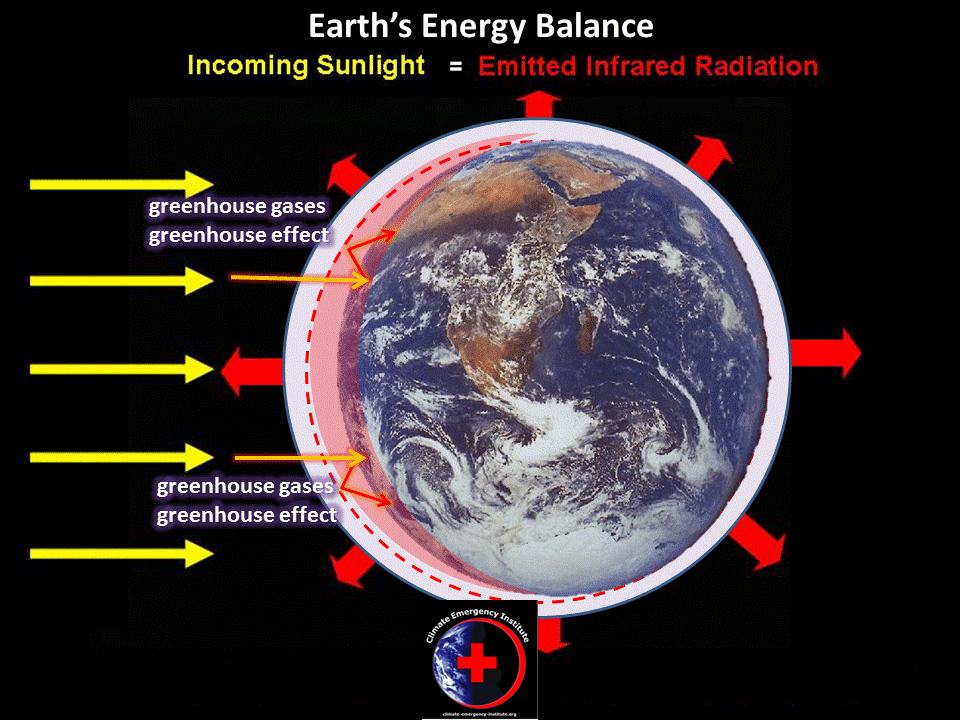
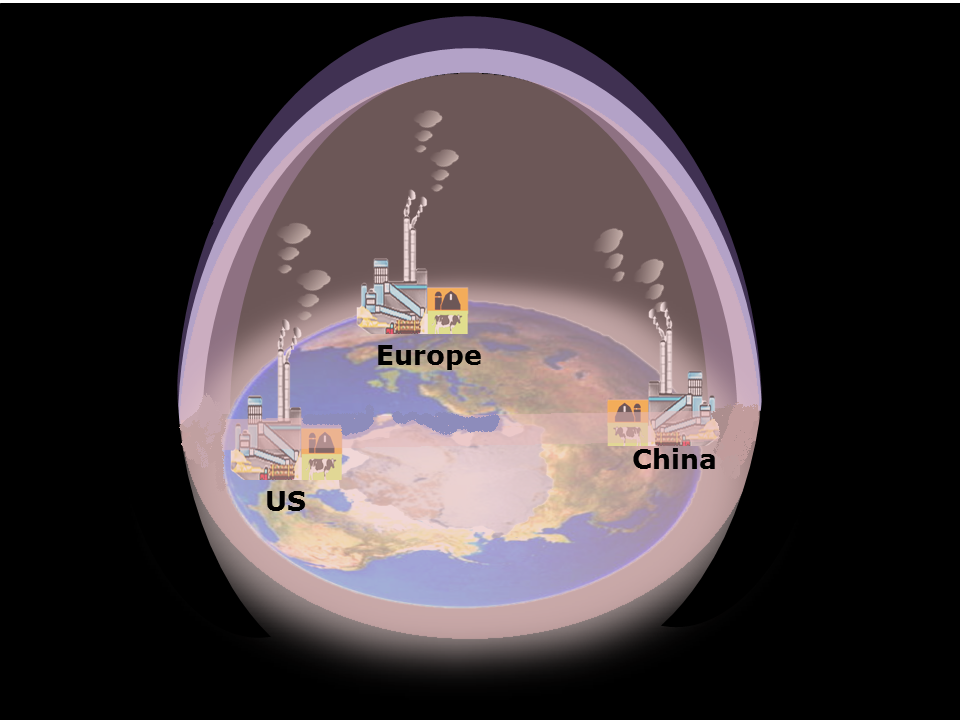
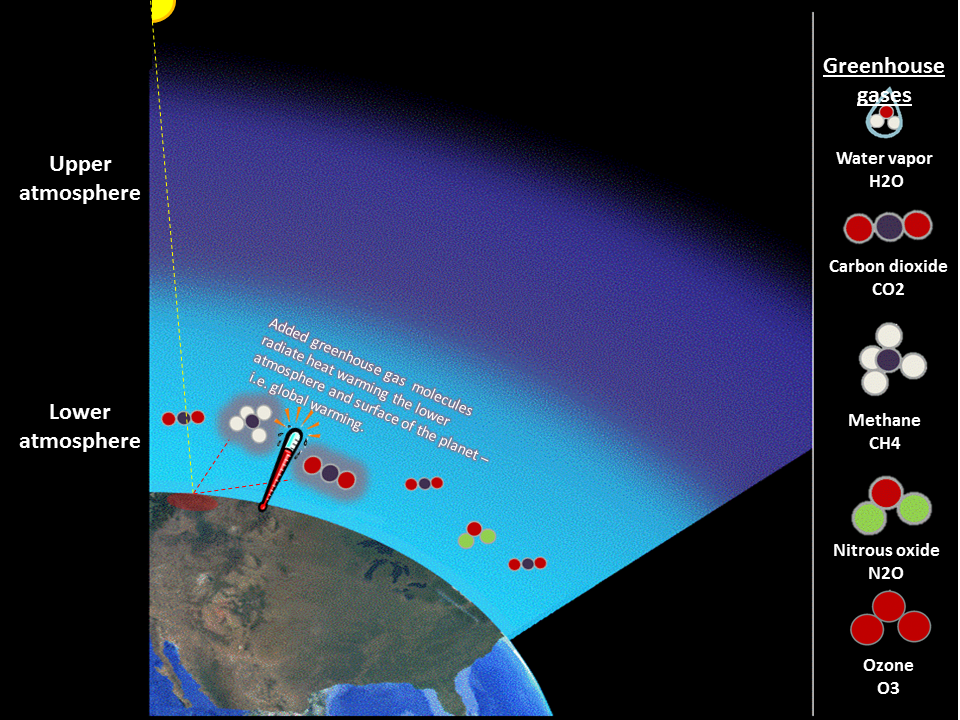

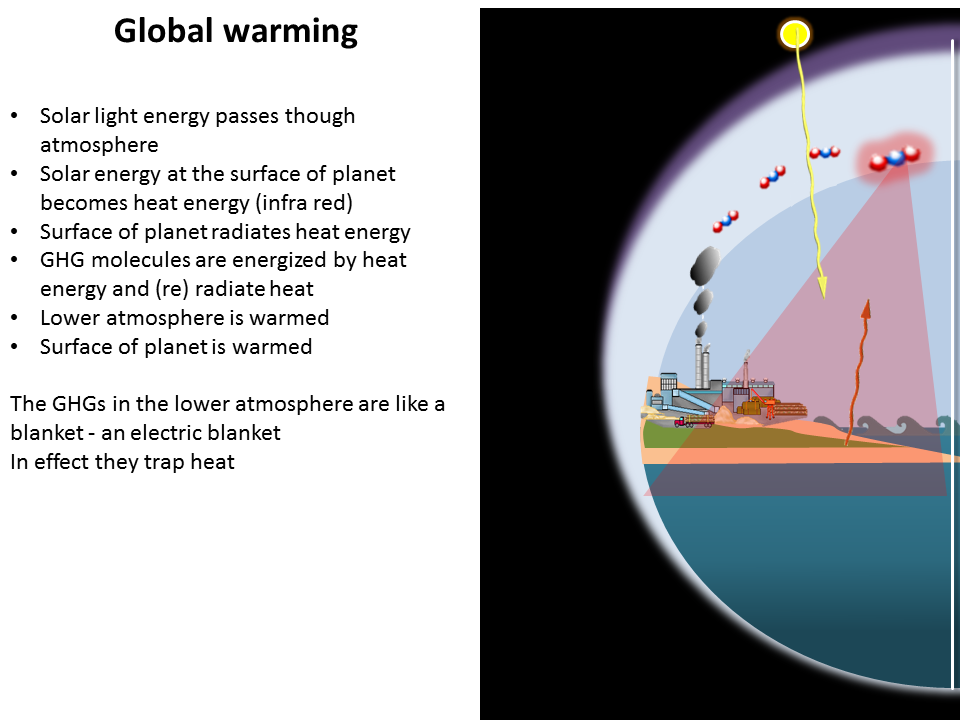
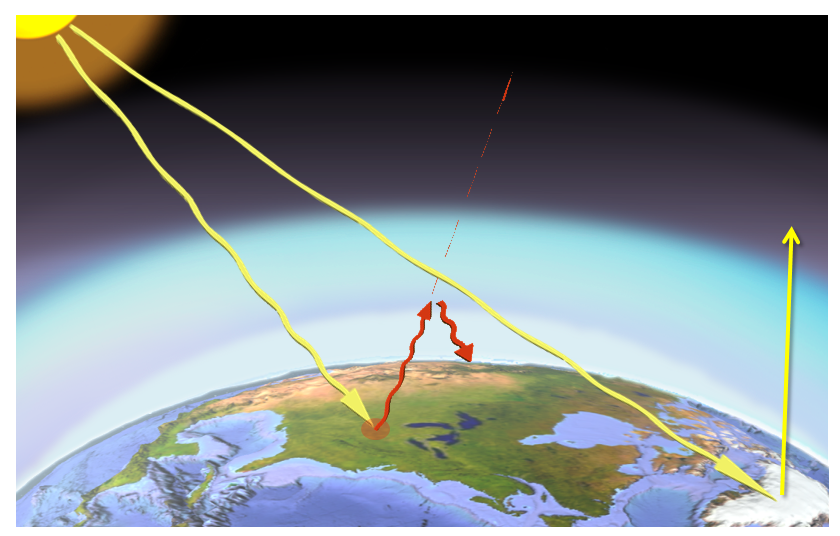
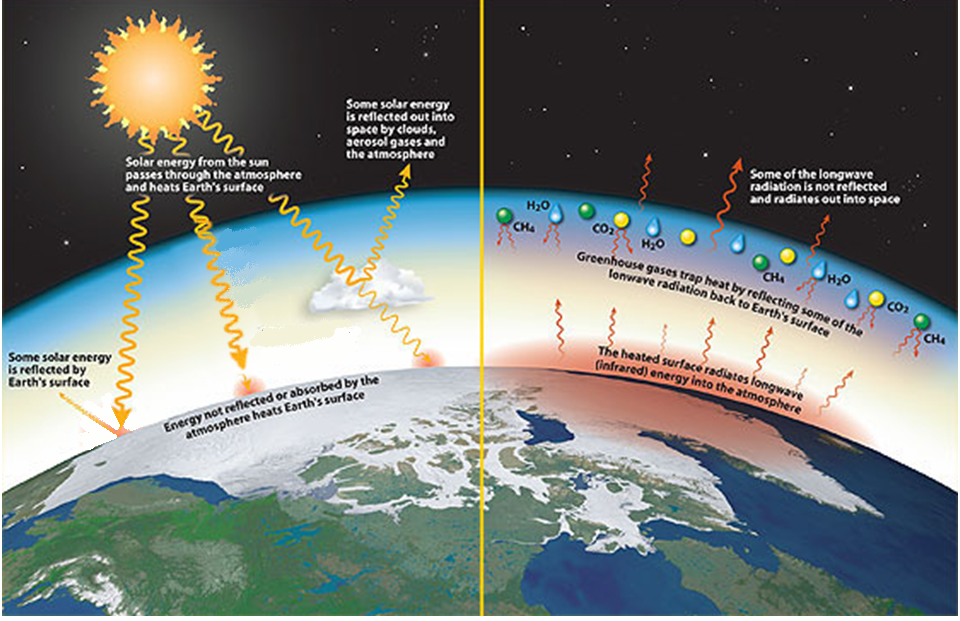
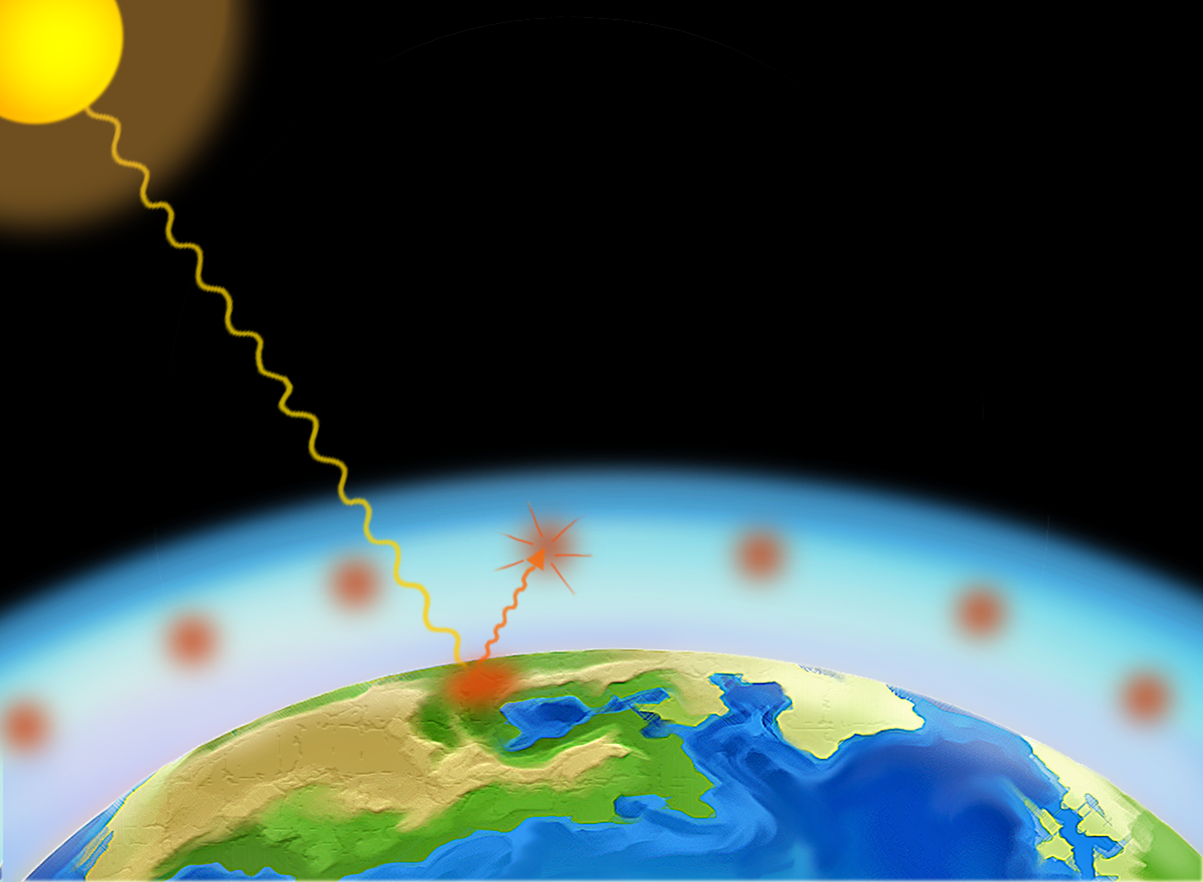
It is the 'enhanced greenhouse effect'. It is better described as as global heating because it is an increase in heat radiating greenhouse gases in the lower atmosphere. Global warming is the inevitable result of more GHGs in the atmosphere because they last a long time in the atmosphere. 20% of CO2 emissions last 1000 years. This and the fact that most heat is taken up by the oceans makes global warming last at least 1000 years (S Solomon Irreversible climate change due to carbon dioxide emissions).
GHG emissions cause lower atmospheric heating which after the ocean heat lag leads to the average surface warming. Climate change is caused by this and by the addition of (heat) energy to the lower atmosphere adding energy to the climate system.
This not quite complete because global warming is mainly warming of the oceans. Global average surface temperature increase is land-ocean temperature increase (term of NOAA).
There are two different defined degrees of global warming, because of the inertia of the climate system (ocean heat lag). Today's global warming is 0.8C, but that is only the realized or transient warming. Even if no more heat were added to the system today, the planet would carry warming until it eventually reached equilibrium warming which is about double the transient warming (NRC 2011).
Global warming may be abrupt or rapid. This has happened in the past, as recently as 11,5000 years ago ending the abrupt cooling called the Younger Dryas. The ice core record shows that natural warming that ends the ice ages is much faster than the cooling periods so the climate system has a tendency for abrupt warming. It is +ve feed-backs that make for abrupt warming.
Global warming is not evenly spread. The Northern hemisphere land warns faster that the Southern, which has much more ocean. The NH is now warming at twice the SH rate.
The central continents warm more - up to about double the global average.
The Arctic warms the most because of Arctic amplification resulting from loss of Arctic albedo cooling capacity
GHG emissions cause lower atmospheric heating which after the ocean heat lag leads to the average surface warming. Climate change is caused by this and by the addition of (heat) energy to the lower atmosphere adding energy to the climate system.
This not quite complete because global warming is mainly warming of the oceans. Global average surface temperature increase is land-ocean temperature increase (term of NOAA).
There are two different defined degrees of global warming, because of the inertia of the climate system (ocean heat lag). Today's global warming is 0.8C, but that is only the realized or transient warming. Even if no more heat were added to the system today, the planet would carry warming until it eventually reached equilibrium warming which is about double the transient warming (NRC 2011).
Global warming may be abrupt or rapid. This has happened in the past, as recently as 11,5000 years ago ending the abrupt cooling called the Younger Dryas. The ice core record shows that natural warming that ends the ice ages is much faster than the cooling periods so the climate system has a tendency for abrupt warming. It is +ve feed-backs that make for abrupt warming.
Global warming is not evenly spread. The Northern hemisphere land warns faster that the Southern, which has much more ocean. The NH is now warming at twice the SH rate.
The central continents warm more - up to about double the global average.
The Arctic warms the most because of Arctic amplification resulting from loss of Arctic albedo cooling capacity
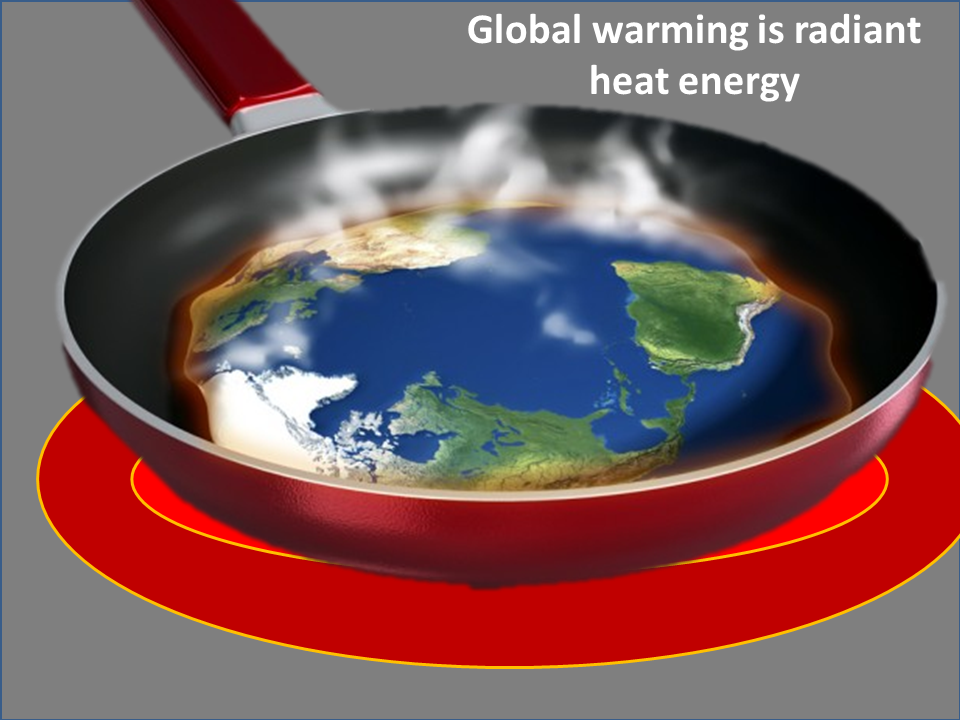

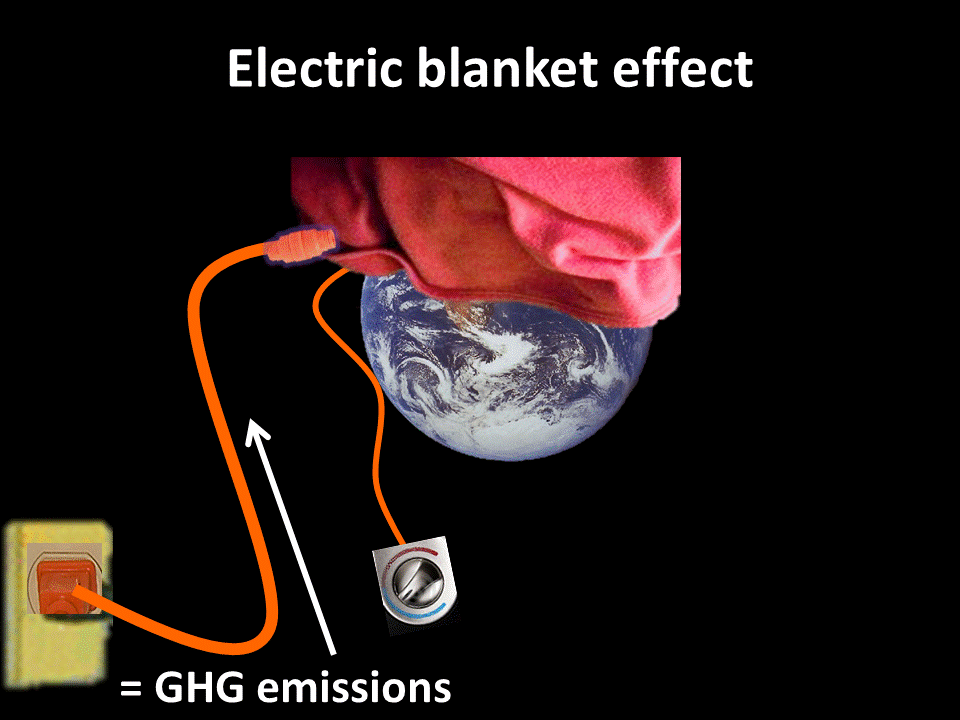
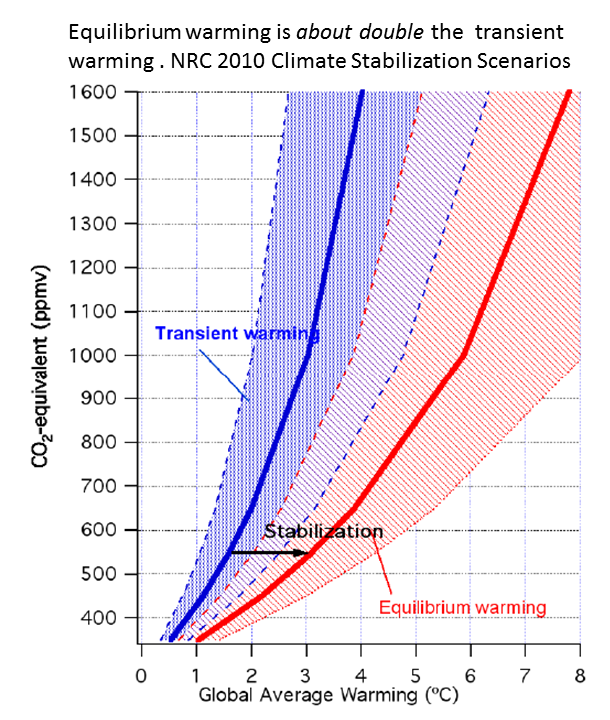
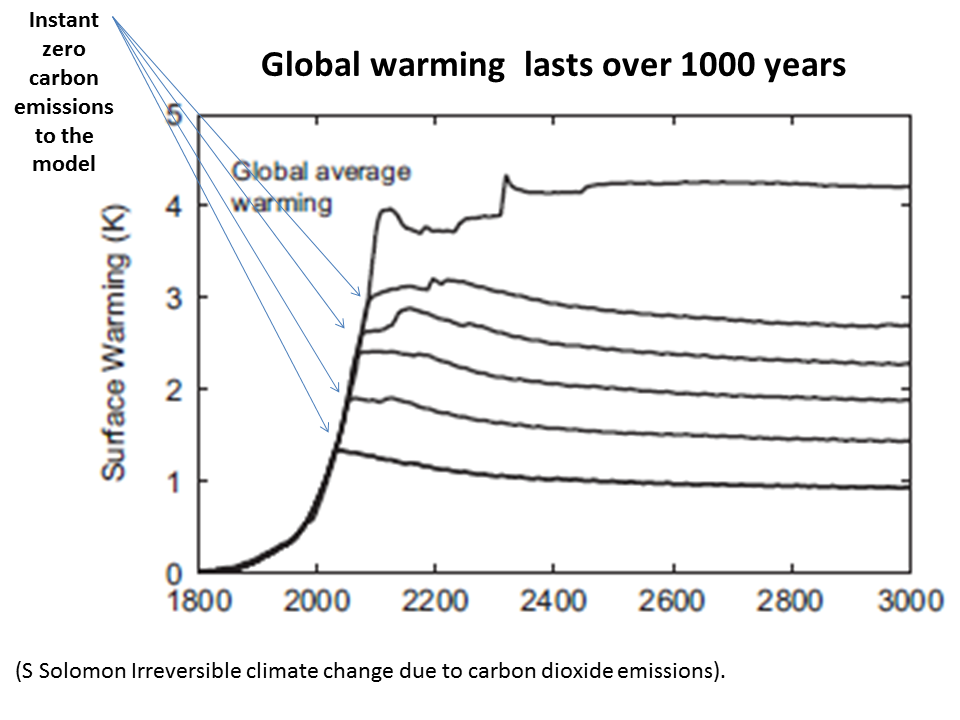
Global warming can be a confusing term. It is defined by climate science as the global average (land-sea) surface temperature increase caused by industrial age GHG emissions. This only represents a very small amount of the heat added to the climate system by increased atmospheric GHGs.
From Encyclopaedia of EarthThe term global warming is often used synonymously with the term climate change, but the two terms have distinct meanings. The more important term is global climate change (and variation). John Holdren says the term global warming is a misnomer that is not descriptive of the science and he uses the term climate . (disruption John Holdren). James Lovelock has always used the term 'global heating'. The first international reference was to heating of the atmosphere at the 1972 UN Stockholm conference on Environment and Population and is the most accurate definition. Global warming is one aspect of global climate change which is caused by increasing radiative forcing (heating) of the lower atmosphere.
disruption.
Definition (Oxford dict) Global warming is a gradual increase in the overall temperature of the earth’s atmosphere generally attributed to the greenhouse effect caused by increased levels of carbon dioxide, CFCs, and other pollutants. Warming of the climate system (IPCC) is much the preferred definition.
How Global Warming Works simple short science videos
From Encyclopaedia of EarthThe term global warming is often used synonymously with the term climate change, but the two terms have distinct meanings. The more important term is global climate change (and variation). John Holdren says the term global warming is a misnomer that is not descriptive of the science and he uses the term climate . (disruption John Holdren). James Lovelock has always used the term 'global heating'. The first international reference was to heating of the atmosphere at the 1972 UN Stockholm conference on Environment and Population and is the most accurate definition. Global warming is one aspect of global climate change which is caused by increasing radiative forcing (heating) of the lower atmosphere.
disruption.
Definition (Oxford dict) Global warming is a gradual increase in the overall temperature of the earth’s atmosphere generally attributed to the greenhouse effect caused by increased levels of carbon dioxide, CFCs, and other pollutants. Warming of the climate system (IPCC) is much the preferred definition.
How Global Warming Works simple short science videos
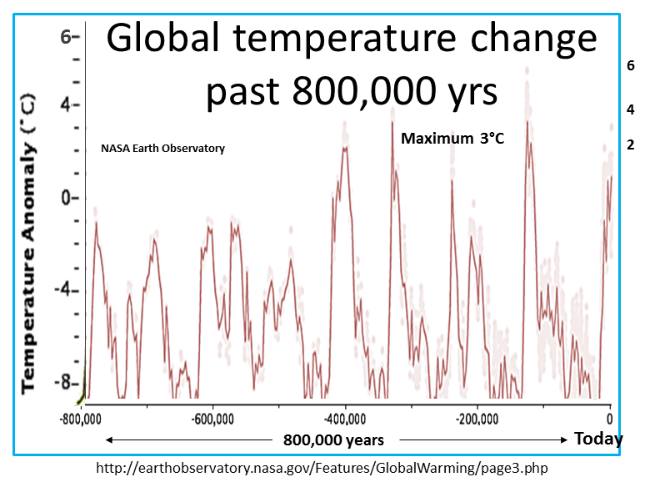

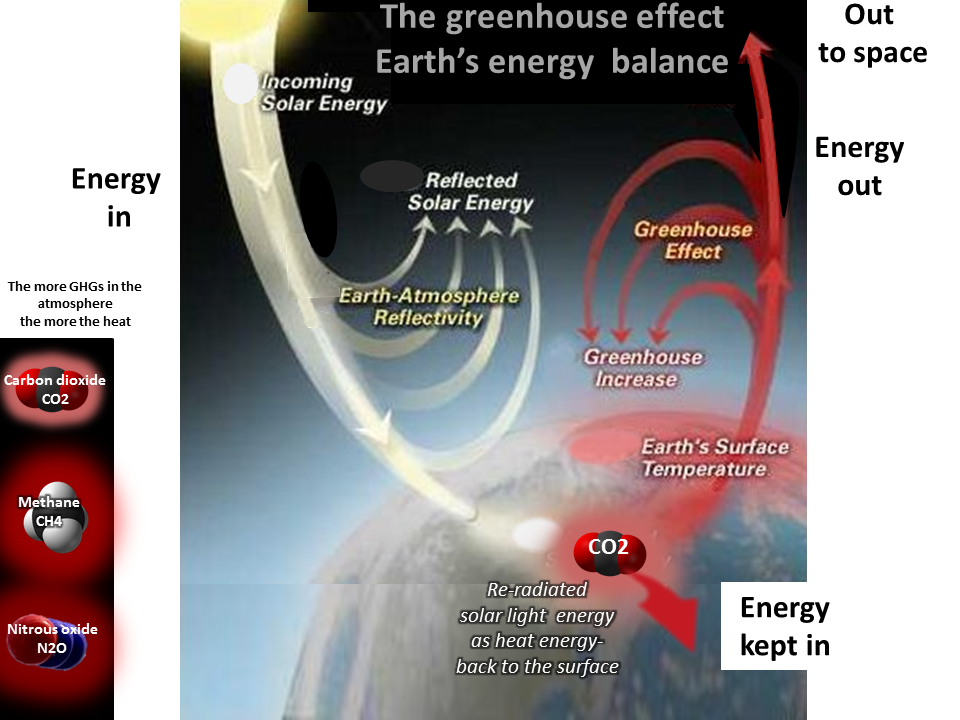
Greenhouse energy- global warming -Earth energy balance
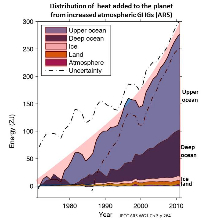
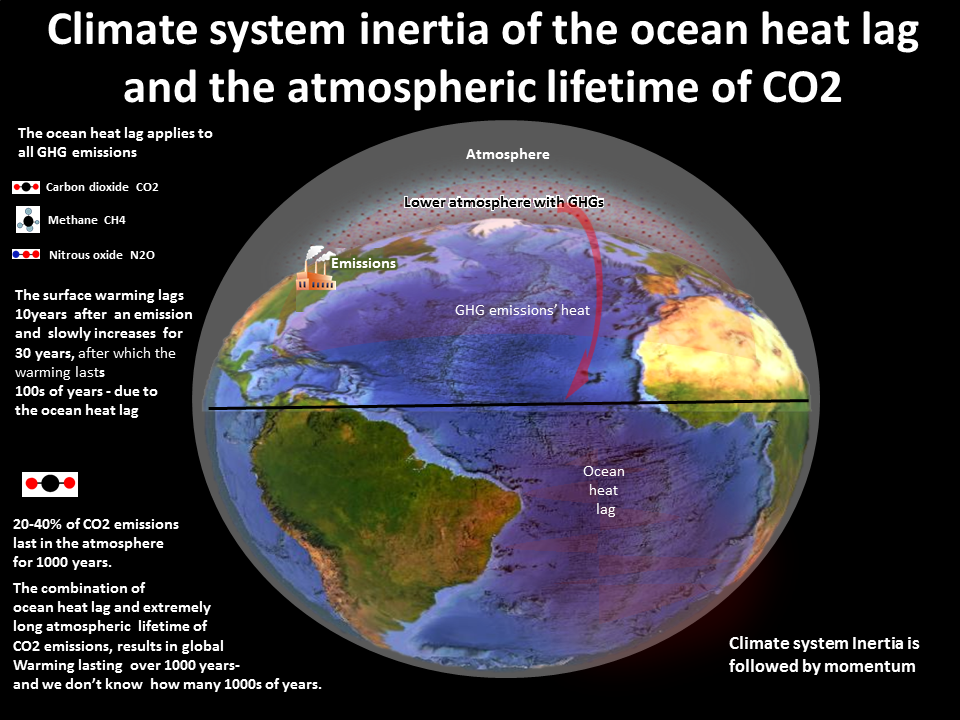
Science Museum GHGs Excellent animation